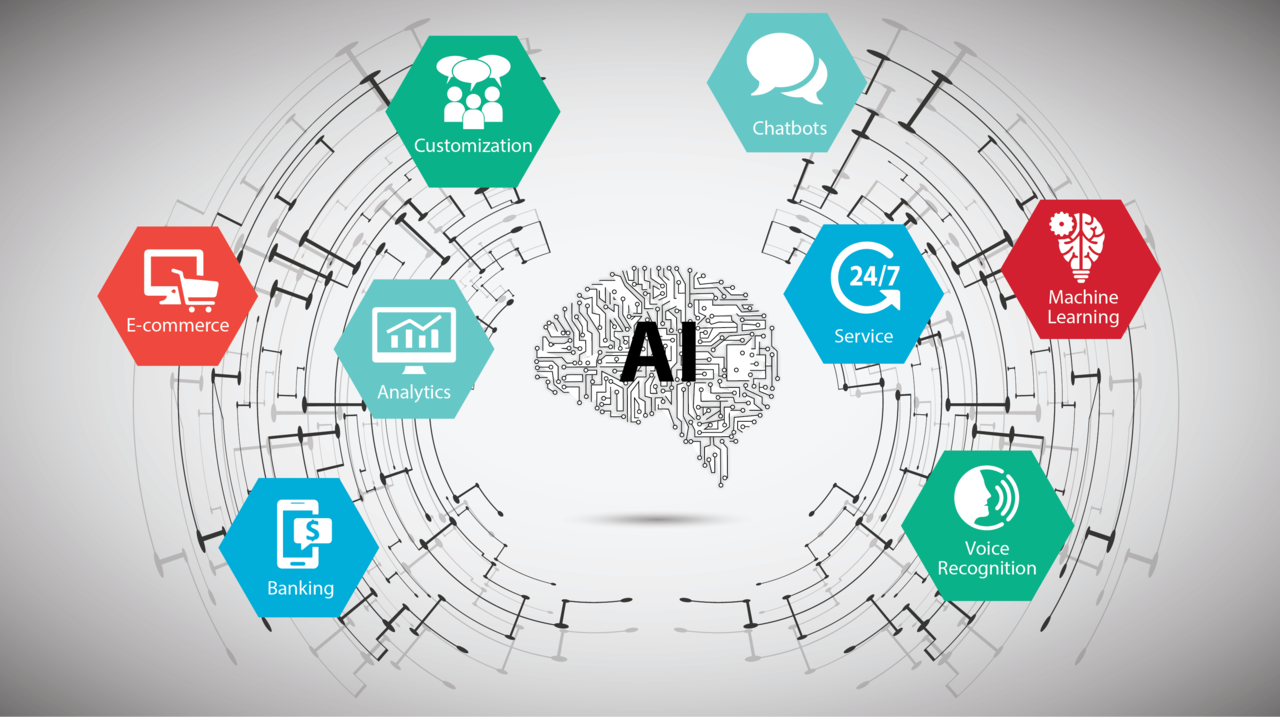Pause for some minutes and remember your worst customer experience. There’s a sudden rise of anger in your heart, right?
Now pause again and remember your best customer experience. Do you still want to be given such kind of quality treatment? Well, that’s the work of the company’s sales and customer service section to work on that.
Customer experience is crucial to e-commerce businesses’ success in the ever-changing digital market.
As a result, companies continuously seek new methods to provide tailored, practical, and engaging experiences as online purchasing continues to dominate consumer behavior.
With artificial intelligence (AI), organizations can improve client interactions by utilizing data and automation.
In this post, we’ll examine how AI may transform the e-commerce consumer experience, transform how firms run, and elevate customer pleasure to new heights.
Read Also: The ethics of using Artificial Intelligence (AI) in decision making
HOW, THEN, CAN AI IMPROVE CUSTOMER EXPERIENCE IN E-COMMERCE?
AI can help boost customer experience in e-commerce in so many ways. This article will examine eight profound ways AI can improve customer experience in e-commerce.
1. Personalized Recommendations
Delivering personalized product suggestions is one of the essential benefits of AI in e-commerce.
Numerous client data points, including browsing habits, past purchases, and demographic data, are analyzed by AI algorithms to produce suggestions catered explicitly to each buyer.
This tailored strategy not only improves the purchasing experience for the customer but also raises conversion and customer loyalty rates.
2. Chatbots and virtual assistants
Virtual assistants and chatbots powered by AI are becoming increasingly common in e-commerce.
These intelligent systems use machine learning (ML) and natural language processing (NLP) algorithms to comprehend and reply to client inquiries and offer immediate support.
Chatbots may answer frequently asked questions, provide product information, process orders, and even assist customers as they shop.
As a result, businesses may enhance customer satisfaction by offering 24/7 help, cutting response times, and ensuring consistent and accurate information by automating customer care.
3. Enhanced Search and Discovery
On e-commerce platforms, search and discovery skills have been greatly enhanced by AI algorithms.
Advanced search algorithms can interpret user intent, evaluate product qualities, and deliver relevant search results even for confusing or partial searches.
Additionally, AI-powered visual search enables users to submit photographs or use the cameras on their phones to look for goods, expediting the search process and making it more straightforward for users to locate the goods they want.
4. Predictive Analytics and Inventory Management
By utilizing predictive analytics, AI can improve inventory management. For example, AI algorithms can precisely estimate demand and optimize inventory levels by examining past sales data, market trends, and other pertinent aspects.
Due to fewer stockouts and overstocking, firms can increase the effectiveness of their supply chains.
In addition, businesses may improve customer satisfaction and avoid lost revenues due to unavailability by making items accessible when customers need them.
5. Sentiment Analysis and Feedback
AI-powered sentiment analysis can analyze customer feedback, reviews, and social media mentions to gain insights into customer sentiment and satisfaction levels.
This data can be used to identify areas for improvement, address customer concerns, and identify emerging trends.
By actively listening to customer feedback, businesses can adapt their strategies, improve their products or services, and foster a customer-centric approach, enhancing customer loyalty and advocacy.
6. Virtual Try-On and Augmented Reality (AR)
AI-powered virtual try-ons and augmented reality technology have transformed how shoppers interact with things through e-commerce.
Before making a purchase, buyers may use a virtual try-on to see how clothing or cosmetics appear.
This immersive experience not only boosts client confidence but also lowers the percentage of returns, increasing customer happiness and reducing business expenses.
7. Fraud Detection and Security
AI-powered virtual try-ons and augmented reality technology have transformed how shoppers interact with things through e-commerce.
Before making a purchase, buyers may use a virtual try-on to see how clothing or cosmetics appear.
This immersive experience not only boosts client confidence but also lowers the percentage of returns, increasing customer happiness and reducing business expenses.
AI has caused a surge of innovation in the e-commerce industry, altering the consumer experience and how firms operate.
8. E-commerce businesses can provide personalized, efficient, and secure customer experiences
This is by leveraging AI-powered technologies such as customized recommendations, chatbots, enhanced search and discovery, predictive analytics, sentiment analysis, feedback analysis, virtual try-on, and fraud detection.
The implementation of AI in e-commerce not only benefits customers but also brings numerous advantages to businesses.
By leveraging AI-powered solutions, companies can gain a competitive edge by providing superior customer service, optimizing inventory management, and making data-driven decisions.
Read Also: The future of transportation:self-driving cars and the rise of AI
The benefits of AI in improving the customer experience in e-commerce
1. Increased Conversion Rates
Personalized recommendations, chatbots, and virtual assistants can guide customers through buying, address their concerns, and provide real-time assistance.
This customized approach leads to increased customer satisfaction and higher conversion rates.
2. Improved customer retention
Businesses can address issues proactively by analyzing customer feedback and sentiment and improving their products or services.
This helps enhance customer loyalty and retention, as customers feel valued and understood.
3. Enhanced Operational Efficiency
AI algorithms can automate customer support, inventory management, and fraud detection tasks, improving operational efficiency and cost savings.
This enables businesses to allocate resources more effectively and focus on strategic initiatives.
4. Data-Driven Decision-Making
AI algorithms analyze vast amounts of customer data and generate actionable insights.
By better understanding consumer preferences, market trends, and demand patterns, organizations are better able to make data-driven decisions that promote customer happiness and corporate growth.
5. Streamlined Shopping Experience
AI-powered search and discovery and virtual try-on technologies streamline the shopping experience, enabling customers to find products quickly and accurately assess their suitability.
This reduces customer frustration and increases the likelihood of making a purchase.
Read Also: The latest advancements in robotics and automation
6. Enhanced Security
AI-powered fraud detection algorithms can identify suspicious activities and prevent fraudulent transactions, protecting businesses and customers from potential security breaches.
In addition, this builds trust and confidence among customers, encouraging them to make purchases with peace of mind.
Conclusion
While AI has enormous potential benefits for the e-commerce business, addressing possible problems and ethical concerns is critical.
For example, companies must guarantee that AI algorithms are used transparently and responsibly, respect consumer privacy, and provide clear opt-out choices for data gathering.
Furthermore, AI systems must be monitored and fine-tuned frequently to ensure accuracy, relevance, and efficacy.
AI is altering the e-commerce market, redefining how firms engage with customers, and improving the buying experience.
AI-powered solutions transform the consumer experience and drive company success, from tailored suggestions to chatbots, virtual try-on, and fraud detection.
As e-commerce evolves, businesses must embrace AI to remain competitive and provide excellent consumer experiences in the digital space.

